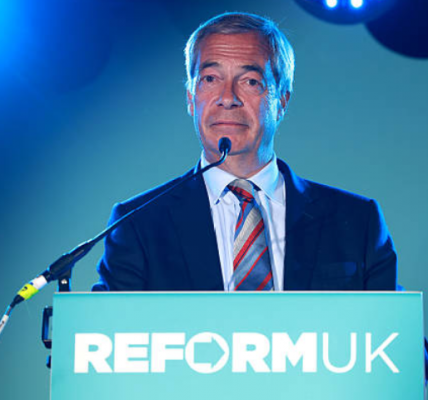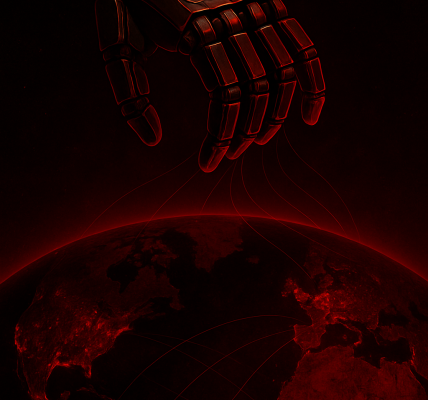The rise of the boycott phenomenon in the modern world: A powerful tool or a double-edged sword?
In a society where information and social media are intertwined, and have become accessible by anyone, the power of collective voices is rampant more than ever. Protest movements have evolved, become digitalized, and people are increasingly starting to raise their voices to fight against anything they feel is wrong. One of the primary methods they utilize, is the act of ‘boycotting’.
Boycotts are defined as: “anticonsumption tactics used against companies that engage in practices deemed unethical or unjustified” (Makarem & Jae, 2016), and they have become a response to a wide range of issues. But what are the driving points of boycotts and how have they become such a powerful force in our modern society?
Influencers under fire, the price of visibility
The answer to the previous question rests in the rise of social media a tool of mass connection and visibility. This tool, has also given rise to many new job titles, one of which being the ‘influencer’. Influencers often promote their lifestyle on online platforms, and have a serious shot at becoming popular by doing so. This phenomenon has given rise to a new online economy (Day, 2019), that has brought along its own economic challenges, making the influencer profession a double-edged sword. Influencers are constantly burdened with the fear of losing their trendiness, image, and popularity, which their income almost entirely depends on. Being an influencer includes visibility and a need for irreproachability (Koay et al., 2021). Hence, if the influencer does something their followers disapprove of, it can create a wave of hatred, and such a wave is practically unmanagable in this day and age. The common consequence of a reproachable act, is a form of boycott coming from the influencer’s followers, who refuse to engage with or consume their content, which can even cause the influencer to lose partnerships with brands. For instance, during the Israel-Palestine conflict, some influencers and stars were boycotted for not talking about their point of view on the issue (Tenbarge, 2023). These boycotts became a trend on TikTok with the hashtag: ‘blockout2024’ where people were appealing to ‘block’ some stars/influencers who were staying silent on the Israel-Palestine conflict (Mendez, 2024). In this case, we can see the power of social media at its peak, as influencers can lose hundreds of thousands of followers and their source of income after such acts of protest. Interestingly, social media boycotts are not only enforced on individuals, but often towards brands too.
The boycott for the brands, a sword of Damocles
Just like the influencers, the most important tool for brands is their popularity and image. The more popular they are, the more people will be keen to buy their products. Their advertisements or declarations need to be completely neutral and stay grounded in the business world in order to not fall into a polemic which can lead to a boycott. However, companies sometimes take risks to follow trends and please customers in their marketing communications. For example, Zara, the famous Spanish clothing brand, has faced controversy and calls for a boycott due to one of their advertisements being considered shocking for its similarities to war scenes in Gaza (Dmitracova, 2023). In modern society, popular companies have a sword of Damocles above their head, as acting ethically has become a must-do. Any false step can spread through social media and create a boycott, and even the most honest companies can also be the victim of boycotts if geopolitical tensions come into play.
Geopolitical tensions spark economic boycotts
Boycotts are not only related to individual actions, but they can also reflect geopolitical tensions between countries. Conflicts and tensions often push a country to boycott brands of the opposing nation(s). These boycotts have become a powerful tool in the arsenal of statecraft, as the economies of countries involved can be strongly affected. Though, a national boycott can be also be a threat to the country that is performing the boycott. We saw that Western countries which have been boycotting Russia, one of the biggest energy suppliers in the world (The New York Times, 2022), are facing severe consequences as inflation is being felt all across the West. As mentioned, boycotts led by countries can represent a massive loss for even the most honest companies. At the start of the war between Russia and Ukraine, there was an appeal for every Western company to leave Russia. Companies that had announced departure lost more than $103 billion (Sonne et al., 2023).
Some of these boycotts are not always related to brands. The Cold War illustrates this statement, as the conflict between the United States and the Soviet Union was mostly an economic and psychological war. We can cite the Olympic games of Los Angeles in 1984, where the Soviet Union refused to send athletes to the event (Kobierecki, 2015). Even today, we are experiencing a contemporary economic conflict between China and the USA, resulting in significant boycotts between the two nations (Zhong & Myers, 2021). These examples illustrate how a boycott can strongly impact national and international economies as well as companies, and can become a powerful geopolitical weapon.
The Weaponization of Boycotts: A New Threat?
In modern society, the boycott has become a symbol of virtue and a moral guide for many people. It is also a fabulous way to encourage companies or people to act ethically. However, this phenomenon has created a society where anything said or not said, anything done or not done can be used as a threat against the person/brand/country of origin. This begs the question: is it unreasonable to consider that boycotts are a double-edged sword, serving to promote ethical behaviour in society yet potentially being used to spread misinformation to damage a brand, country, or individual?
————————————————————————————-
Resources :
Day, H. (2019, February 15). How we’re all being changed by influencer culture. BBC Three. https://www.bbc.co.uk/bbcthree/article/b5488f38-e9c4-4e0c-95e2-3002f47f88f8
Dmitracova, O. (2023, December 12). Zara pulls controversial ad campaign that critics said evoked Gaza war | CNN Business. CNN. https://www.cnn.com/2023/12/12/business/zara-ad-gaza-controversy/index.html
II, M. M. (2024, May 14). Celebrity and Influencer Boycott Sparks Debate. TIME. https://time.com/6977623/blockout-2024-celebrities-palestine-online-activism/
Koay, K. Y., Teoh, C. W., & Soh, P. C.-H. (2021). Instagram influencer marketing: Perceived social media marketing activities and online impulse buying. First Monday. https://doi.org/10.5210/fm.v26i9.11598
Kobierecki, M. M. (2015). BOYCOTT OF THE LOS ANGELES 1984 OLYMPIC GAMES AS AN EXAMPLE OF POLITICAL PLAY-ACTING OF THE COLD WAR SUPERPOWERS. Polish Political Science Yearbook, 44(1), 93–111.
Makarem, S. C., & Jae, H. (2016). Consumer Boycott Behavior: An Exploratory Analysis of Twitter Feeds. The Journal of Consumer Affairs, 50(1), 193–223.
McDonald’s: Behind the fast-food firm’s boycott controversy. (2024, April 5). https://www.bbc.com/news/business-68740617
Sonne, P., Ruiz, R. R., & Chilla, N. (2023, December 17). How Putin Turned a Western Boycott Into a Bonanza. The New York Times. https://www.nytimes.com/interactive/2023/12/17/world/putin-companies-economy-boycott-elites-benefit-ukraine-war.html
Tenbarge, K. (2023, November 12). Influencers dodge backlash while speaking up about Israel and Gaza. NBC News. https://www.nbcnews.com/tech/social-media/influencers-dodge-backlash-speaking-israel-gaza-rcna121224
Why Russian Oil and Gas Matter to the Global Economy. (2022, March 9). The New York Times. https://www.nytimes.com/explain/2022/03/09/business/gas-oil-russia-ukraine
Zhong, R., & Myers, S. L. (2021, December 8). Taiwan, Trade, Tech and More: A Tense Era in U.S.-China Ties. The New York Times. https://www.nytimes.com/article/us-china-tensions-explained.html







An Excellent reporting of a phenomena directly issued of a political tendency allowing, encouraging all to manifest their existence on all subjects!